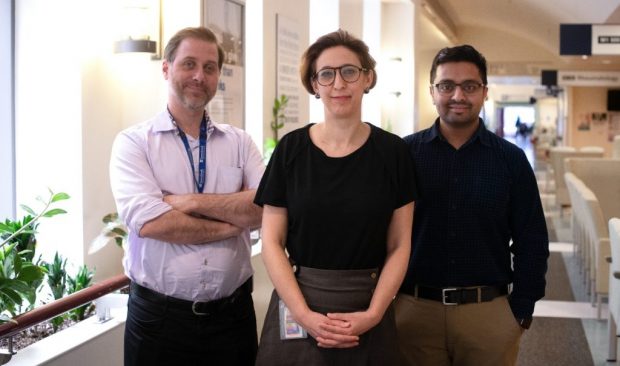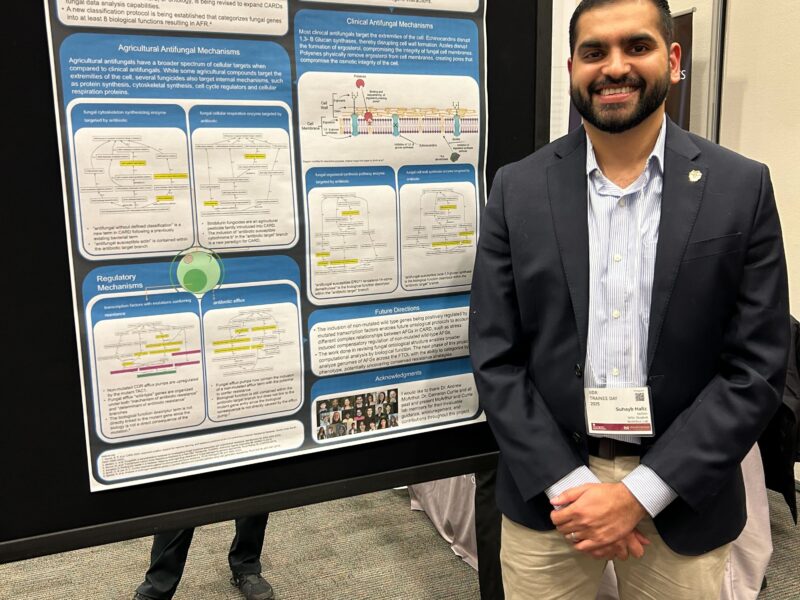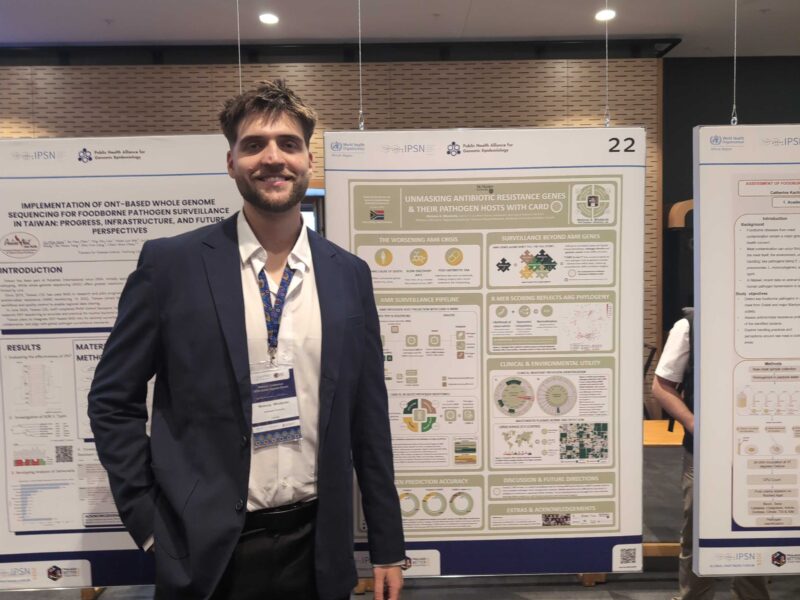 Banerjee, A., J.A. Nasir, P. Budylowski, L. Yip, P. Aftanas, N. Christie, A. Ghalami, K. Baid, A.R. Raphenya, J.A. Hirota, M.S. Miller, A.J. McGeer, M.A. Ostrowski, R.A. Kozak, A.G. McArthur, K. Mossman, & S. Mubareka
Banerjee, A., J.A. Nasir, P. Budylowski, L. Yip, P. Aftanas, N. Christie, A. Ghalami, K. Baid, A.R. Raphenya, J.A. Hirota, M.S. Miller, A.J. McGeer, M.A. Ostrowski, R.A. Kozak, A.G. McArthur, K. Mossman, & S. Mubareka
bioRxiv doi:10.1101/2020.04.11.037382
SARS-CoV-2 emerged in December 2019 in Wuhan, China and has since infected over 1.5 million people, of which over 100,000 have died. As SARS-CoV-2 spreads across the planet, speculations remain about the evolution of the virus and the range of human cells that can be infected by SARS-CoV-2. In this study, we report the isolation of SARS-CoV-2 from two COVID-19 patients in Toronto, Canada. We determined the genomic sequences of the two isolates and identified single nucleotide changes in representative populations of our virus stocks. More importantly, we have tested a wide range of human immune cells for infectivity with SARS-CoV-2. We confirm from our studies that human primary peripheral blood mononuclear cells (PBMCs) are not permissive to SARS-CoV-2. As SARS-CoV-2 continues to spread globally, it is essential to monitor any small nucleotide polymorphisms in the virus and to continue to isolate circulating strains of the virus to determine cell susceptibility and pathogenicity using in vitro and in vivo infection models.
Hear Arinjay & Andrew talk about their SARS-CoV-2 work: https://www.youtube.com/watch?v=SVzDHESnssg
See also: McMaster researcher plays key role in isolating COVID-19 virus for use in urgent research

